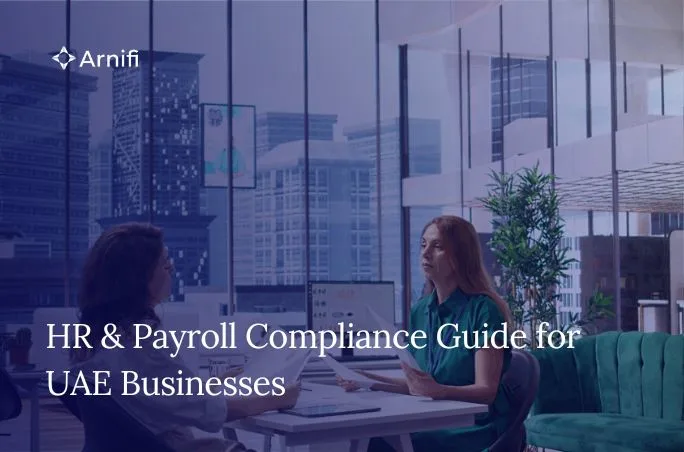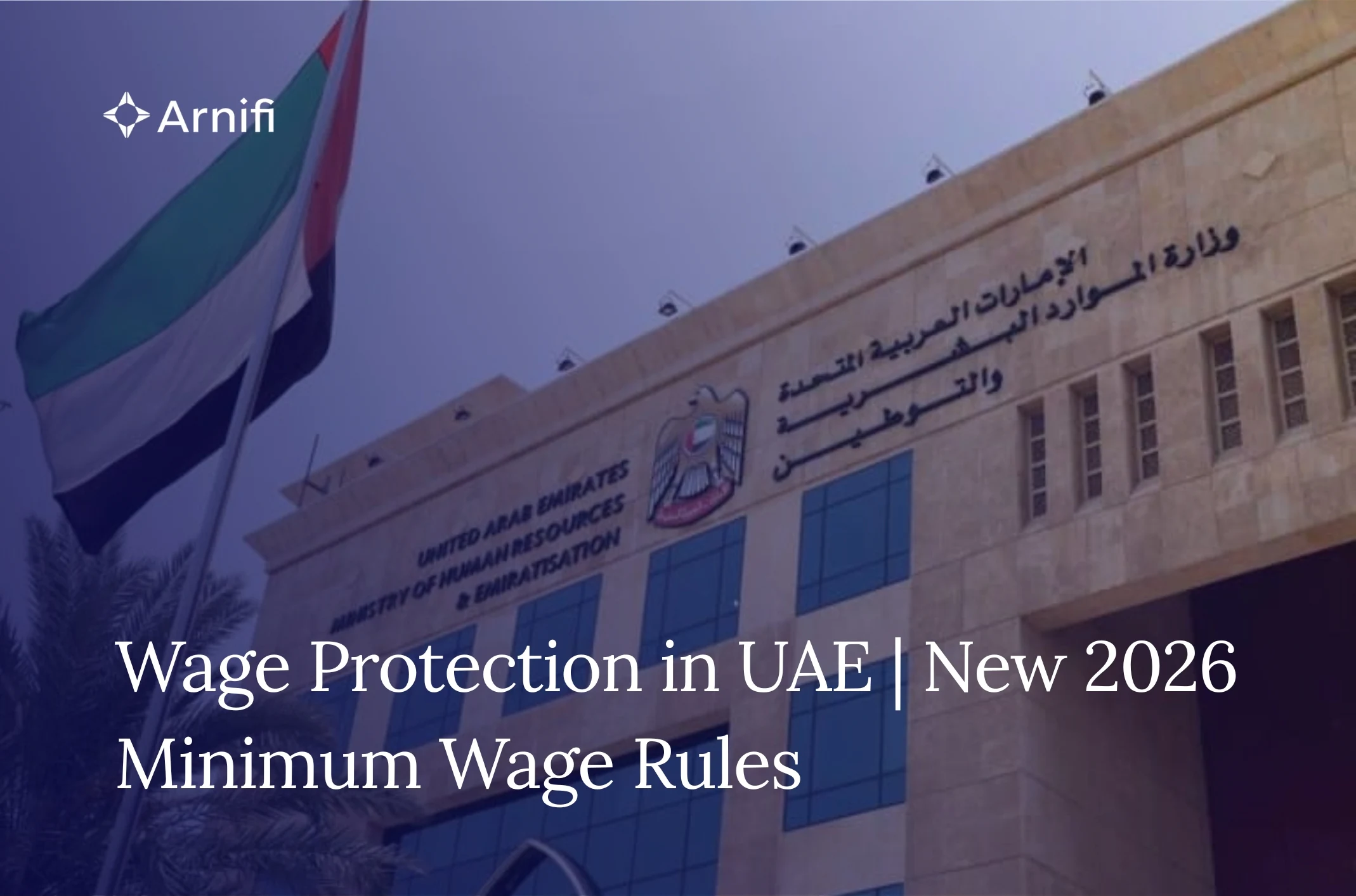How to Recruit Medical Staff in the UAE Without Legal Issues
by Shethana May 19, 2025  6 MIN READ
6 MIN READ
The UAE’s healthcare sector is growing fast — about 5.3% annually until at least 2027. However, while the demand for skilled medical staff keeps climbing, many hospitals and clinics still get hit with legal trouble because they skip over hiring rules. Over 60% are at risk, and penalties aren’t minor. Think of fines over AED 1 million or losing key licences. That’s why anyone hiring, whether for a big hospital or a small clinic, must stick to legal steps from the start.
This guide covers everything you need to know to hire doctors, nurses, and specialists in the UAE without getting tangled in legal issues. It also shows where Employer of Record (EOR) services come in. It is beneficial if you’re hiring medical staff in UAE, moving into the UAE, or do not want to set up your legal entity.

Table of contents
UAE Medical Staff Recruitment: Legal Requirements
1. Licensing and Certifications
Licensing rules in the UAE are strict, and they vary depending on the job.
Doctors
Doctors must have a valid licence from their home country. But that’s not just enough. They also need approval from either the Ministry of Health (MOH), Dubai Health Authority (DHA), or the Department of Health Abu Dhabi (DOH).
Their degrees must be appropriately attested by the issuing country’s embassy and the UAE’s Ministry of Foreign Affairs. Even internship certificates need to be in order.
Nurses
Nurses also need to be licensed under either DHA or HAAD. They should have a BLS (Basic Life Support) or ACLS (Advanced Cardiovascular Life Support) certificate with them.
Also, they must have at least 2 years of hands-on clinical experience to get a visa.
Specialists
Roles like Consultant, GP, or Specialist follow a tier-based system. That means different licensing for each level. They also need equivalency documents from the UAE’s Qualification Authority. Without that, they’re considered unqualified under UAE law — even if they’ve been practising elsewhere for years.
These requirements apply to all hires, even if you’re relocating a medical staff in UAE from abroad to work onsite.
2. Labour Law Rules You Need to Follow
Hiring licensed staff is step one. You also have to stick to labour rules that apply to all sectors in the UAE.
- Wage Protection System (WPS)
You must pay salaries through a UAE-approved bank using the WPS system. If you miss payments or delay them, your company can get blocked. That means you can’t process new visas or renewals. - Emiratisation
This rule applies to big healthcare providers. Every year around 2% of your workforce needs to be a UAE nationals. Missing that target, you’ll be fined AED 96,000 or more yearly. - Probation Period
You can’t put someone on probation for longer than 6 months. If you want to end the contract during this time, you must give a 14-day notice. - Health Insurance
You have the liability to cover all employees with an insurance plan for their health. This is non-negotiable. It applies from the day they start, and if you miss this step, you can be penalised.
These labour rules apply whether the employee is based locally or is a medical staff in UAE moving into the UAE.
| Mistake | What Can Happen | How EOR Services Fix It |
| Hiring someone without a licence | Fines of up to AED 500,000 | EORS do licence checks before hiring |
| Missing Emiratisation quotas | AED 96,000 fine each year | EORS tracks and reports quota progress |
| Late salary payments | WPS blocklist, visa ban | EORS run payroll through approved banks |
| Hiring with the wrong visa | Deportation + fines for you | EORS handle visa and sponsorship fully |
| Contracts missing key clauses | Risk of lawsuits and penalties | EORS use Mohre-checked contract drafts |
These mistakes are easy to make if you don’t know the system or try to cut corners. It’s even riskier when you’re hiring someone from abroad or managing remote paperwork. That’s where EOR services take the pressure off your team.
Step-by-Step Recruitment Process
1. Compliance Checks Before You Make an Offer
Before you are drafting a contract, recheck if the candidate is legally eligible enough to work in the UAE.
- Use DHA or MOH portals to check if their license is active and valid.
- Ensure degrees and certificates are attested by their home country’s embassy and the UAE Foreign Affairs.
- If they’re not yet in the UAE, confirm if they qualify for a work visa (at least two years of experience, clean background, no licence issues)
For a medical staff in UAE planning to relocate, do this first. Delays in these checks can push hiring back by months.
2. Drafting a Contract That Follows UAE Law
You can’t use the same contract you’d use in other countries. UAE contracts must include specific terms and must avoid others.
Include:
- Contract length — max is 3 years
- Overtime pay — usually 1.25x to 1.5x of the hourly rate
- Notice period — minimum 30 days
Don’t include:
- Non-compete clauses longer than 6 months
- Salary cuts without a written agreement
Contracts that don’t follow UAE labour law can be ruled invalid in court. With EORS, this is handled using templates reviewed by UAE authorities.
3. Visa and Onboarding
Once the contract is ready and signed, the immigration process will start.
- Entry Permit: Submit via Tasheel or Amer centres
- Medical Test: The employee must pass tests for HIV, TB, and hepatitis
- Emirates ID: Biometric data must be registered within 30 days of arrival
No medical worker can start their job before this process is done. Even if it’s a medical staff in UAE working part-time now, they can’t do anything clinical until all approvals are in.
Why EOR Services Help You Stay Legal
EOR services don’t just simplify admin — they make sure you stay out of legal trouble.
1. Licence Checks and Sponsorship Covered
EORS checks credentials and cross-references with UAE authorities and confirms that degrees are recognised. They also act as legal sponsors — no need for 51% local ownership if you’re hiring through them in the mainland UAE.
This is a massive help in bringing in a medical staff in UAE and avoiding building an entire legal entity in the UAE.
2. Built-in Compliance Systems
EORS use systems that:
- Monitor WPS uploads
- Send alerts on visa expiry.
- Track Emiratisation progress
So even if a law changes, you don’t get caught out.
3. Help With Disputes
Suppose there’s a dispute over salary, notice period, or contract terms, EORSS steps in. The EORs have PROS registered with UAE authorities and can speak both Arabic and English to deal with legal issues quickly.
Smart Hiring Tips That Keep You Safe
- Use the right job portals.
Stick to official platforms like DHA’s Sheryan. Unverified websites often carry fake listings or doctored CVSS. - Always check backgrounds
Talk to past employers, check work history, and look for red flags like malpractice or license suspensions.
Conclusion
Hiring medical staff in the UAE isn’t just about checking licences. It’s about following a process that protects you legally and ensures your hire can work here. EOR services like Arnifi HR help manage licences, contracts, visas, payroll, and government compliance. Whether filling local roles or bringing in a medical staff in UAE, this setup keeps hiring legal and hassle-free.
Top UAE Packages

Related Articles
Top UAE Packages



